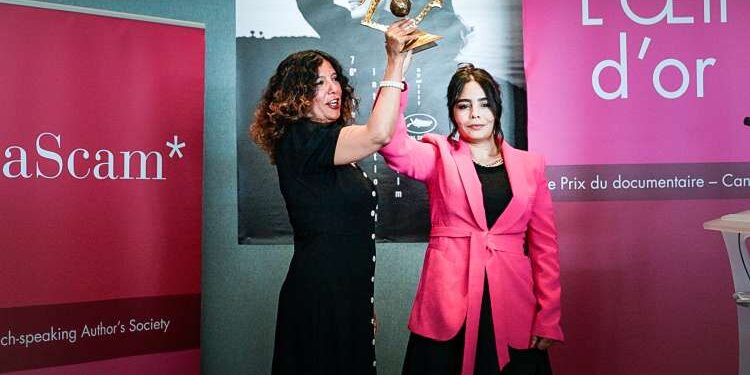The 76th Cannes Film Festival was marked by a remarkable presence of Arab films, which brilliantly managed to seduce the juries and win several prestigious distinctions. Among the 12 Arab films in competition, no less than 7 of them were honored, testifying to the exceptional quality of these works and the growing recognition of Arab cinema on the international scene.
At the top of these awarded films is Olffa’s girls Directed by Kaouther Ben Hania (Tunisia). This feature film, selected in the official competition alongside films of renowned directors such as Ken Loach or Nuri Bilge Ceylan, not only captivated spectators, criticisms and various cinema professionals, But also managed to win a total of 4 prizes from different juries. He was notably honored by the Prize for positive cinema, which rewards the most positive feature film of the official selection in competition, by questioning the film industry and by putting his art at the service of future generations. In addition, he received the François Chalais prize, a special mention awarded to a film related to the values of journalism. Furthermore, Olffa’s girls won the golden eye for the best documentary, ex-aequo with the film Kadib Abyad/The mother of all lies d’Asmae el moudir. Finally, it was rewarded by the Citizenship Prize, which celebrates the commitment of directors and writers in favor of citizen values, highlighting the individual and collective human qualities as well as the preservation of our planet for future generations.
The film Kadib Abyad/The mother of all lies of Asmae al-Moudir (Morocco) occupies the second position in terms of recognition, with the price Best director in the competition a certain look And the golden eye of the best documentary, ex-aequo. This double distinction attests to artistic quality and poignant message conveyed by this film.
Among the other awarded Arab films, Inshallah walad From Amjad Al Rasheed (Jordan) was praised by the Golden Rail of the best feature film in the competition of the Critics’ Week, as well as by the Gan Foundation Prize for Distribution.
The short film I Promise you paradise From Morad Mostafa (Egypt) was also successful, winning the Golden Rail for the best short film in the Critics’ Week section, in addition to the public prize. This double distinction testifies to the promising talent of the director and the warm reception reserved for his work.


As for the short film Ayyur/Moon From Zenib Wakrim (Morocco), he won the 3rd prize for the 76th the Cinef Selection.
.jpeg)
.jpeg)
When will we see an Arab film winning the Palme d’Or? Until now, only an Arab film has succeeded in this feat, namely the Algerian film Chronicle of Broise Years (1975) Directed by Mohammed Lakhdar-Hamina which won the Palme d’Or during the 28th edition of the Cannes Festival.
Regarding the Egyptian director Youssef Chahine, despite the selection of 9 of his films at the Cannes Film Festival (4 in official competition, 2 in a certain look, 3 out of competition), he never won the Palme d’Or for one of his films. However, he was honored for the whole of his work with the fiftieth anniversary of the Cinquantenaire.
This year, we all hoped, in vain, that another Arab film won the Palme d’Or, especially after the great success of the Tunisian film Olffa’s girls And the numerous glowing articles he has been the subject of in the international press. Hopefully this wish will be realized during the next editions.
The remarkable presence of Arab films at the 76th Cannes Film Festival and their resounding success testify to the vitality and wealth of contemporary Arab cinema. These cinematographic works have captivated and moved spectators, transcending cultural and linguistic boundaries. Thanks to their undeniable quality, these films radiated by highlighting the diversity and talent of Arab cinematographic creation on the international scene.
It is actually desirable that this movement will continue and that Arab films benefit from greater visibility and greater recognition in the selections of international festivals. The new generation of promising Arab filmmakers deserves to be supported and encouraged, in order to continue to produce inspiring and captivating cinematographic works.
Neïla Driss









